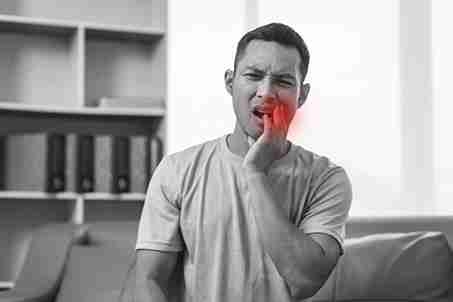What Counts as a Dental Emergency? Know the Signs in Wolverhampton

Dental pain can arrive subtly or strike without warning, but not every issue warrants a frantic trip to your local clinic. So, what exactly qualifies as a dental emergency? Recognising the difference between urgent and routine dental problems can help you respond quickly and avoid complications. Whether you’re at work, out with family, or relaxing at home in Wolverhampton, knowing when to act is key.In this article, we’ll explore what truly counts as a dental emergency, when it’s time to see an emergency dentist in Wolverhampton, and how an Orthodontist in Wolverhampton can help you stay one step ahead of serious oral health issues through prevention and early intervention.
What Is Considered a Dental Emergency?
In general, a dental emergency refers to any oral health issue that requires urgent attention to stop bleeding, alleviate severe pain, or save a tooth.
Here are common situations that qualify:
True Dental Emergencies:
- Severe toothache that won’t subside
- Knocked-out (avulsed) teeth
- Loose adult teeth (without trauma)
- Cracked or fractured teeth causing pain
- Oral trauma with bleeding or lacerations
- Swelling or abscesses affecting breathing or swallowing
Non-Emergencies (but still need prompt care):
- Mild toothache
- Lost filling or crown (if no pain/swelling)
- Chipped tooth (not painful)
- Broken orthodontic wire
- General sensitivity
If in doubt, it’s always safer to call an emergency dentist in Wolverhampton for guidance.
Dental Emergency vs. Routine Issue – Quick Comparison
|
Issue |
Emergency? |
What to Do |
|
Knocked-out tooth |
Yes |
Visit emergency dentist within 1 hour |
|
Mild toothache |
No |
Book routine check-up |
|
Broken braces wire |
No |
Cover with wax, see dentist soon |
|
Bleeding after extraction |
Yes |
Apply pressure and seek urgent care |
|
Abscess/swelling of face/neck |
Yes |
Visit emergency clinic immediately |
|
Lost crown/filling (no pain) |
No |
Schedule an appointment |
|
Cracked tooth (sharp pain) |
Yes |
Visit an emergency dentist immediately |
|
Bleeding gums during brushing |
No |
Book with Orthodontist in Wolverhampton for cleaning & advice |

When Tooth Pain Becomes a Red Flag
Toothache is one of the most common dental complaints, but not every ache needs emergency treatment. The key is in the severity, duration, and associated symptoms.
Red flags that require immediate dental attention:
- Intense, throbbing pain
- Swelling in jaw or face
- Fever or chills
- Bitter taste in the mouth (possible abscess)
- Sensitivity to pressure or temperature lasting hours
Ignoring these signs could lead to infection spreading—potentially to other parts of the body.
Don’t Forget the Role of an Orthodontist
An orthodontist Wolverhampton isn't just about clean teeth. They play a vital role in preventing dental emergencies before they begin.
Here’s how:
- Spotting early signs of gum disease or decay
- Educating on brushing, flossing, and diet
- Performing deep cleans to reduce infection risk
- Advising on oral health habits for high-risk patients
Think of your Orthodontist as your first line of defence—catching problems long before you’d need an emergency dentist.
What an Emergency Dentist in Wolverhampton Can Do for You
Emergency dentists are trained to deal with time-sensitive and high-risk oral issues quickly and effectively. When you visit an emergency dentist in Wolverhampton, you can expect:
- Immediate pain relief
- Diagnosis via X-rays or visual exam
- Temporary or permanent treatment (e.g. fillings, extractions)
- Antibiotics for infection
- Referrals if specialist care is needed
They prioritise saving your natural teeth whenever possible—and getting you back to comfort fast.
When to Call and Where to Go
If you're unsure whether your dental issue qualifies as an emergency, a few simple guidelines can help you decide. Contact a dentist immediately if you experience uncontrolled bleeding in the mouth, sudden trauma (such as a car accident or sports injury), a knocked-out tooth, or severe facial swelling. These are all signs that urgent attention is needed to prevent further complications. Many dental clinics in Wolverhampton provide same-day appointments for such cases. If your emergency occurs outside normal hours or over the weekend, calling NHS 111 can help you access appropriate care and direct you to the nearest available emergency dental service.
How to Handle Common Dental Emergencies at Home
While you wait to see an emergency dentist in Wolverhampton, taking the right steps at home can help minimise damage and ease discomfort. If a tooth has been knocked out, handle it by the crown (never the root), rinse it gently with water—without scrubbing—and try to place it back into the socket. If that’s not possible, store it in milk or tuck it between your cheek and gum to keep it moist. For a broken tooth, rinse your mouth with warm salt water, apply a cold compress to reduce swelling, and cover any sharp edges with sugar-free chewing gum or dental wax. In the case of a painful abscess, rinse gently with salt water, avoid pressing on the area, take paracetamol if needed, and seek urgent dental attention.
Prevention Is Better Than Panic
The best way to avoid dental emergencies is through consistent care and smart daily habits. Regular check-ups with a Orthodontist in Wolverhampton play a vital role in keeping your teeth and gums healthy, helping to catch minor issues before they turn into major problems. To stay on top of your oral health, brush twice daily with fluoride toothpaste, and don’t forget to floss or use interdental brushes to clean between teeth. If you play contact sports, wearing a mouthguard is essential to protect against impact. Try to avoid biting into very hard or sticky foods, which can damage fillings or teeth. Most importantly, schedule visits with your dentist and Orthodontist every six months for thorough cleaning and early detection.
What to Include in a Dental Emergency Kit
Being prepared can make all the difference when a dental issue strikes unexpectedly. Keeping a small dental emergency kit at home, in your car, or while travelling can help manage pain or prevent further damage before you reach an emergency dentist in Wolverhampton. Essentials to include are sterile gauze, a small container with a lid (for storing a knocked-out tooth), pain relief such as paracetamol, orthodontic wax, and a saline solution or salt sachets for rinsing. It’s also wise to keep the contact details of your local dental practice and Orthodontist in Wolverhampton handy. A little preparation can provide a lot of peace of mind in a dental crisis.
Conclusion: Stay Calm, Get the Right Help
Dental emergencies can feel frightening, but recognising the signs early can save you from pain—and even save your teeth. Whether it’s a swelling jaw, intense toothache, or a knocked-out tooth, seeking care from an emergency dentist in Wolverhampton is the safest route to fast relief. When it comes to protecting your smile, the Oohd Group is here to support you—through emergencies and beyond.
- Questions and Answers
- Opinion
- Motivational and Inspiring Story
- Technology
- True & Inspiring Quotes
- Live and Let live
- Focus
- Geopolitics
- Military-Arms/Equipment
- Güvenlik
- Economy/Economic
- Art
- Causes
- Crafts
- Dance
- Drinks
- Film/Movie
- Fitness
- Food
- Oyunlar
- Gardening
- Health
- Home
- Literature
- Music
- Networking
- Other
- Party
- Religion
- Shopping
- Sports
- Theater
- Health and Wellness
- News
- Culture

